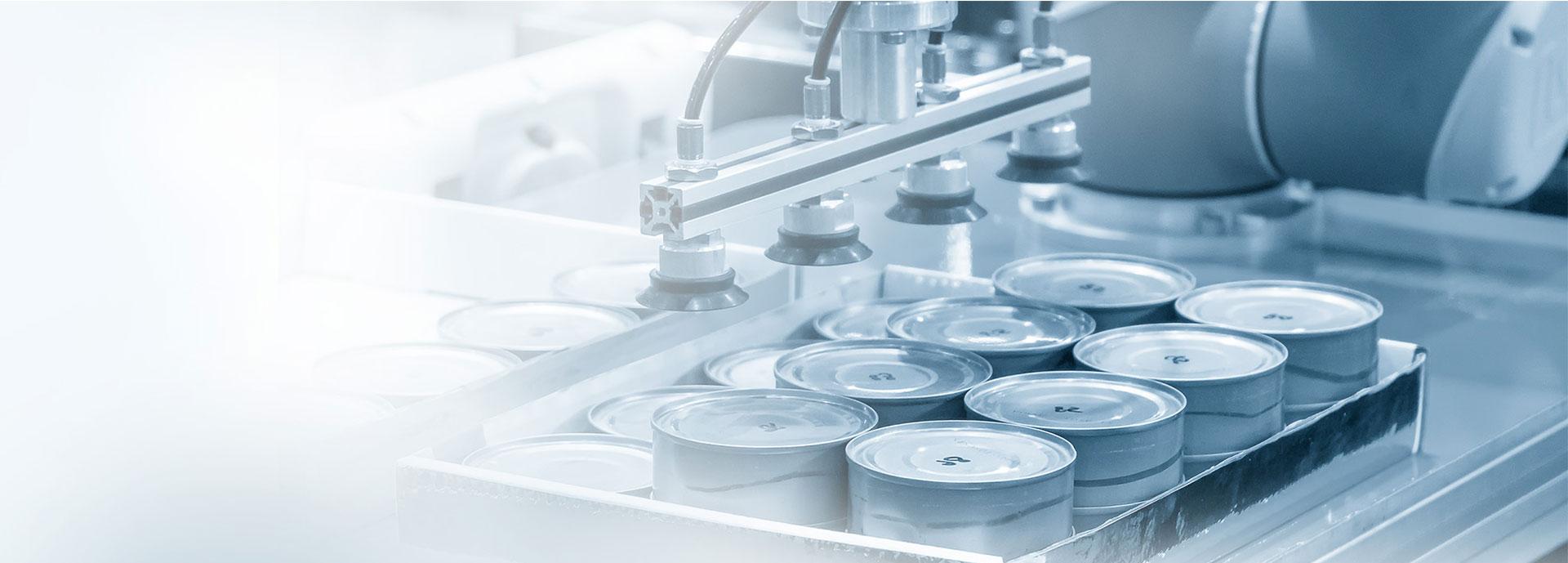Latest
News
Can You Have Protein Before Bed? Benefits & Best Options

Considering a protein-rich snack before bedtime? It's a topic that has piqued the interest of many health enthusiasts. Let's explore the potential benefits and considerations of pre-bed protein, and identify the best protein sources to support your nighttime nutrition.
Why Consider Protein Before Bed?
Including protein in your nighttime routine—whether through a shake or whole food sources—can offer a range of health and performance benefits.
Based on a 2023 study published in the Physiology of Sleep, your body enters a natural recovery state during sleep, making it an ideal time to supply it with the nutrients it needs for muscle repair and regeneration. Consequently, consuming protein before bed helps maintain a positive protein balance overnight, which is crucial for preserving and building lean muscle mass. [2]
In addition to promoting muscle recovery and strength gains [5], nighttime protein can improve sleep quality [6], support metabolism, and even reduce late-night cravings [7]. With that said, we’ll elaborate on these advantages in the next section.
Advantages of Having Protein Before Bedtime
Boosts Muscle Recovery
Enjoying protein before bed can enhance your body's muscle repair process during sleep. A review by the International Society of Sports Nutrition (ISSN) shows that eating protein at night, especially slow-digesting types like casein, keeps a steady flow of amino acids in your body, which boosts muscle repair and growth overnight. This is especially helpful if you’re doing regular strength or endurance training.
Also, the journal Sports Medicine’s 2023 study had 36 young men do an evening workout, then drink either 45 grams of casein, 45 grams of whey, or a calorie-free drink. The results showed that both protein groups had better muscle recovery and growth than the group without protein. It was also the first study to show that pre-bed protein can help build mitochondria, the parts of muscle cells that use oxygen, after endurance training.
Another Medicine & Science in Sports & Exercise study published in 2012 had 16 men do a nighttime workout and then take a recovery drink. Before bed, half of them had 40 grams of casein, and the rest got a placebo. Those who had casein protein had higher amino acid levels throughout the night, leading to a 26% increase in overall protein synthesis and a 22% boost in muscle protein synthesis, compared to the placebo group.
In short, consuming protein before bedtime, especially casein, can significantly support overnight recovery and muscle growth. It also supports energy metabolism during sleep, leading to a more complete recovery for the body.
Enhances Strength Gains
Pairing pre-sleep protein intake with regular resistance training may lead to greater improvements in muscle strength and size. Studies cited in The Journal of Nutrition have shown that individuals who consumed protein before bed experienced more significant gains in muscle strength and size over a 12-week training program.
Promotes Better Sleep Quality
According to MedlinePlus Medical Encyclopedia, certain protein-rich foods contain amino acids like tryptophan, which promote sleep by increasing serotonin and melatonin levels. Therefore, including such proteins in your pre-bedtime routine may improve sleep quality.
Supports Metabolism
The International Society of Sports Nutrition states that consuming 30–40 grams of casein protein before bed can boost muscle protein synthesis (MPS) and increase metabolic rate throughout the night. They particularly recommend nighttime protein intake for athletes who train early in the morning on an empty stomach or those who work out in the evening after dinner, as it helps maintain muscle recovery and energy balance overnight.
Moreover, protein consumption before bed can boost metabolism and help control hunger, which can support weight loss efforts. It also promotes a feeling of fullness, potentially reducing late-night cravings that can hinder weight loss.
Provides Sustained Energy
Consuming casein protein before bed allows your body to gradually absorb amino acids over several hours. This slow digestion not only supports overnight muscle repair but also helps maintain a positive protein balance until morning.
A study published in Nutrients highlights that nighttime protein intake, especially from casein, does not interfere with fat metabolism or increase insulin levels, which means it won’t negatively affect body composition. Instead, it provides the muscles with a prolonged source of fuel, helping to preserve lean mass and support recovery without disrupting your metabolism.
How Much Protein to Take Before Bed & When Exactly Should You Have It?
For most people, it is ideal to consume 20 to 40 grams of protein about 30 minutes before bed or during the last meal of the day. Still, you should consider your age, activity level, and muscle-building goals to determine the specific amount of protein to have. Let’s delve into this:
A study in The Journal of Nutrition investigated how bedtime protein intake affects muscle protein synthesis during sleep. The study recruited 48 healthy older men and compared the effects of consuming 20 grams versus 40 grams of protein before bed. Results showed that 40 grams led to significantly higher overnight muscle protein synthesis, suggesting that a higher dose can be more beneficial—especially for older adults, as well as those with greater activity levels or muscle maintenance needs, such as individuals participating in high-intensity training.
In terms of timing, research in Physical Activity and Nutrition shows that the 30-minute duration allows for initial digestion, ensuring a consistent supply of amino acids becomes available throughout the night to support muscle repair and recovery.
Best Types of Protein to Have Before Bed
When selecting a protein source before bedtime, it’s best to choose one that provides a sustained release of amino acids throughout the night, ensuring your muscles are nourished and protected from breakdown.
Casein: Slow-Release King
Casein protein stands out as a highly recommended option for protein intake before bed due to its slow digestion rate.
Unlike fast-acting proteins, casein forms a gel-like substance in the stomach, leading to a gradual and sustained release of amino acids into the bloodstream over several hours, as seen in a 2016 Nutrients research. This "drip-feed" of protein can effectively counteract muscle protein breakdown that naturally occurs during long periods without food, such as sleep, thereby providing a consistent supply of building blocks for muscle repair and growth overnight.
Another small 2018 study in Nutrients also found that active women who consumed casein 30 minutes before bed experienced a likely increase in next-morning resting metabolic rate and a perceived improvement in resistance training performance.
These benefits make casein an excellent choice for bedtime fueling. What’s more, you don’t have to rely solely on powders either. Casein is naturally found in dairy products like cottage cheese and Greek yogurt, making them convenient whole-food options to support overnight muscle repair and metabolism.
Whey: Rapid, Better for Post-Workout
While whey protein is a fantastic choice for post-workout recovery due to its fast digestion and high branched-chain amino acid (BCAA) content, it isn’t ideal before bed. Whey digests too quickly, leading to a rapid spike in amino acids that won’t last through the night, and it may even cause a temporary rise in insulin levels, which isn’t ideal for overnight muscle preservation.
Plant-Based Blend: Slow, Dairy-Free Option
Plant-based proteins like pea protein can be a great alternative for those avoiding dairy. Pea protein has a similar digestion rate to casein, making it a good choice for sustained nighttime muscle nourishment. However, since some plant proteins are not complete proteins, choosing a plant-based blend ensures you receive all essential amino acids.
Whole-Food Picks: Yogurt, Cottage Cheese & More
Incorporating whole food sources like lean meats, poultry, fish, eggs, and dairy also provides complete proteins for muscle repair and recovery. However, it’s important to be mindful of digestion—some high-protein foods can be heavier on the stomach and may disrupt sleep. To avoid this, opt for easily digestible options and allow adequate time before sleep to prevent discomfort.
To help you choose the right foods, here are some examples of high-quality protein sources and how much you need to eat to get about 20 grams of protein:
| Food | Amount for 20g of Protein |
|---|---|
| Greek yogurt (plain, low-fat) | ~200g |
| Soymilk | ~550ml |
| Cooked chicken breast | ~90g |
| Cooked salmon | ~90g |
| Eggs | ~3 large eggs |
| Firm tofu | ~220-250g |
| Cooked lentils | ~220g |
| Pea protein powder | ~25–30g |

👉Want to know more? Click here: Protein Shakes Before Bed: Benefits, Suggested Amount & Tips
Common Concerns & FAQs About Protein Before Bed
1. Will eating protein before bed make me gain fat?
No, consuming protein before bed won’t cause fat gain, as long as your total daily calorie intake stays within your energy needs. This is evident in a clinical trial by Frontiers in Nutrition which found that nighttime protein intake did not cause negative effects on next-morning appetite or metabolism from pre-sleep protein consumption.
2. Does pre-sleep protein affect sleep quality?
No, moderate protein intake before bed does not disrupt sleep. Research published in the International Journal of Sports Nutrition and Exercise Metabolism supports this, as participants in studies did not report negative effects on their sleep quality or duration after consuming protein close to bedtime.
On the contrary, certain protein sources that contain tryptophan help with serotonin and melatonin production may even help some people fall asleep more easily, as we discussed earlier.
3. Is it safe for my kidneys to consume protein before bed?
For people with normal kidney function, consuming protein before bed is considered safe and doesn’t increase the risk of kidney damage. This can be seen in Nutrition & Metabolism’s study which shows no harmful effects from higher protein intake in healthy individuals.
However, for those with chronic kidney disease (CKD) or impaired kidney function, excessive protein intake, regardless of timing, can potentially place additional strain on the kidneys. Therefore, if you have any concerns about kidney health or have been diagnosed with a kidney condition, it is crucial to consult with a healthcare professional or a registered dietitian to get personalized dietary recommendations.
Grace Biotech is Your Trusted Manufacturer of Protein Supplements
Grabbing some protein before bed can do wonders for your body—it helps muscles recover, keeps your metabolism up, and prevents muscle loss while you sleep. But keep in mind—it could lead to digestive discomfort or extra calories if not balanced right. So, what’s the best protein before bed? Casein, Greek yogurt, cottage cheese, eggs, and plant-based proteins all provide a steady flow of nutrients while you sleep. Lastly, keep in mind that everyone’s different, so find what works best for you!
If you're seeking high-quality protein supplements to support your health and fitness goals, Grace Biotech offers a diverse range of ready-to-drink protein products. Our supplements, including C&B High Protein, Protein Shake, Complete & Balanced Formula, are formulated with complete amino acid profiles and fortified with essential vitamins and minerals. With a variety of delicious flavors to choose from, you can find the perfect supplement to fuel your journey toward a healthier lifestyle.
Explore our selection and discover how Grace Biotech can be your trusted partner in achieving optimal health.
References:
-
Joshua E. Brinkman; Vamsi Reddy; Sandeep Sharma (2025). StatPearls. Physiology of Sleep. Available from: https://www.ncbi.nlm.nih.gov/books/NBK482512/
-
Jäger R, Kerksick CM, Campbell BI, Cribb PJ, Wells SD, Skwiat TM, Purpura M, Ziegenfuss TN, Ferrando AA, Arent SM, Smith-Ryan AE, Stout JR, Arciero PJ, Ormsbee MJ, Taylor LW, Wilborn CD, Kalman DS, Kreider RB, Willoughby DS, Hoffman JR, Krzykowski JL, Antonio J. (2017) International Society of Sports Nutrition Position Stand: protein and exercise. J Int Soc Sports Nutr. https://doi.org/110.1186/s12970-017-0177-8.
-
Trommelen, J., van Lieshout, G.A.A., Pabla, P. et al. Pre-sleep Protein Ingestion Increases Mitochondrial Protein Synthesis Rates During Overnight Recovery from Endurance Exercise: A Randomized Controlled Trial. Sports Med 53, 1445–1455 (2023). https://doi.org/10.1007/s40279-023-01822-3.
-
Res, P. T., Groen, B., Pennings, B., Beelen, M., Wallis, G. A., Gijsen, A. P., Senden, J. M. G., & van Loon, L. J. C. (2012). Protein Ingestion Before Sleep Improves Postexercise Overnight Recovery. Medicine & Science in Sports & Exercise, 44(8), 1560-1569. https://doi.org/10.1249/MSS.0b013e31824cc363.
-
Snijders T, Res PT, Smeets JS, van Vliet S, van Kranenburg J, Maase K, Kies AK, Verdijk LB, van Loon LJ. (2015) Protein Ingestion before Sleep Increases Muscle Mass and Strength Gains during Prolonged Resistance-Type Exercise Training in Healthy Young Men. J Nutr. https://doi.org/10.3945/jn.114.208371.
-
Kerksick CM, Arent S, Schoenfeld BJ, Stout JR, Campbell B, Wilborn CD, Taylor L, Kalman D, Smith-Ryan AE, Kreider RB, Willoughby D, Arciero PJ, VanDusseldorp TA, Ormsbee MJ, Wildman R, Greenwood M, Ziegenfuss TN, Aragon AA, Antonio J. (2017) International society of sports nutrition position stand: nutrient timing. J Int Soc Sports Nutr. https://doi.org/10.1186/s12970-017-0189-4
-
Stefania Manetti, RDN, CDCES, RYT200, My Vita Sana LLC (2024). A.D.A.M. Medical Encyclopedia. Tryptophan; Available from: https://medlineplus.gov/ency/article/002332.htm
-
Kinsey AW, Ormsbee MJ. (2015) The health impact of nighttime eating: old and new perspectives. Nutrients. 7(4):2648-62. https://doi.org/10.3390/nu7042648.
-
Kouw Imre WK, Holwerda Andrew M, Trommelen Jorn, Kramer Irene Fleur, Bastiaanse Jacqueline, Halson Shona L, Wodzig Will KWH, Verdijk Lex van Loon Luc JC. (2017) Protein Ingestion before Sleep Increases Overnight Muscle Protein Synthesis Rates in Healthy Older Men: A Randomized Controlled Trial. The Journal of Nutrition. https://doi.org/10.3945/jn.117.254532
-
Kim J. (2020) Pre-sleep casein protein ingestion: new paradigm in post-exercise recovery nutrition. Phys Act Nutr. https://doi.org/10.20463/pan.2020.0009
- Atsushi Kanda, Kyosuke Nakayama, Chiaki Sanbongi, Masashi Nagata, Shuji Ikegami, Hiroyuki Itoh. (2016) Effects of Whey, Caseinate, or Milk Protein Ingestion on Muscle Protein Synthesis after Exercise. Nutrients. https://doi.org/10.3390/nu8060339
- Takudzwa A Madzima, Jared T Melanson, Jonas R Black, Svetlana Nepocatych. (2018) Pre-Sleep Consumption of Casein and Whey Protein: Effects on Morning Metabolism and Resistance Exercise Performance in Active Women. Nutrients. https://doi.org/10.3390/nu10091273
-
Snijders T, Trommelen J, Kouw IWK, Holwerda AM, Verdijk LB, van Loon LJC. (2019) The Impact of Pre-sleep Protein Ingestion on the Skeletal Muscle Adaptive Response to Exercise in Humans: An Update. Front Nutr. https://doi.org/10.3389/fnut.2019.00017.
-
Ferguson C, Aisbett B, Lastella M, Roberts S, Condo D. (2022) Evening Whey Protein Intake, Rich in Tryptophan, and Sleep in Elite Male Australian Rules Football Players on Training and Nontraining Days. Int J Sport Nutr Exerc Metab. https://doi.org/10.1123/ijsnem.2021-0145.
-
Martin, W.F., Armstrong, L.E. & Rodriguez, N.R. (2005) Dietary protein intake and renal function. Nutr Metab (Lond) 2, 25. https://doi.org/10.1186/1743-7075-2-25

